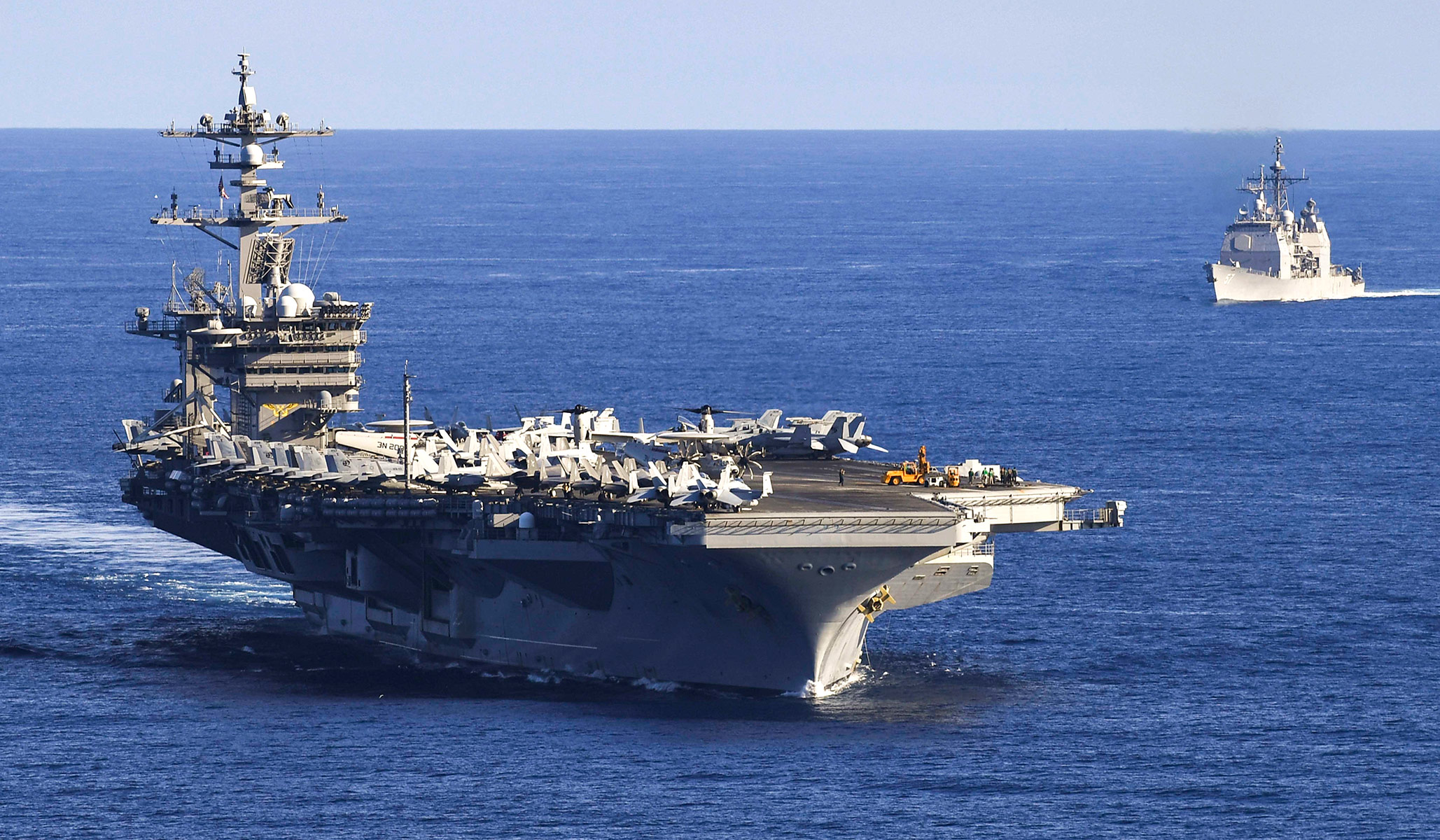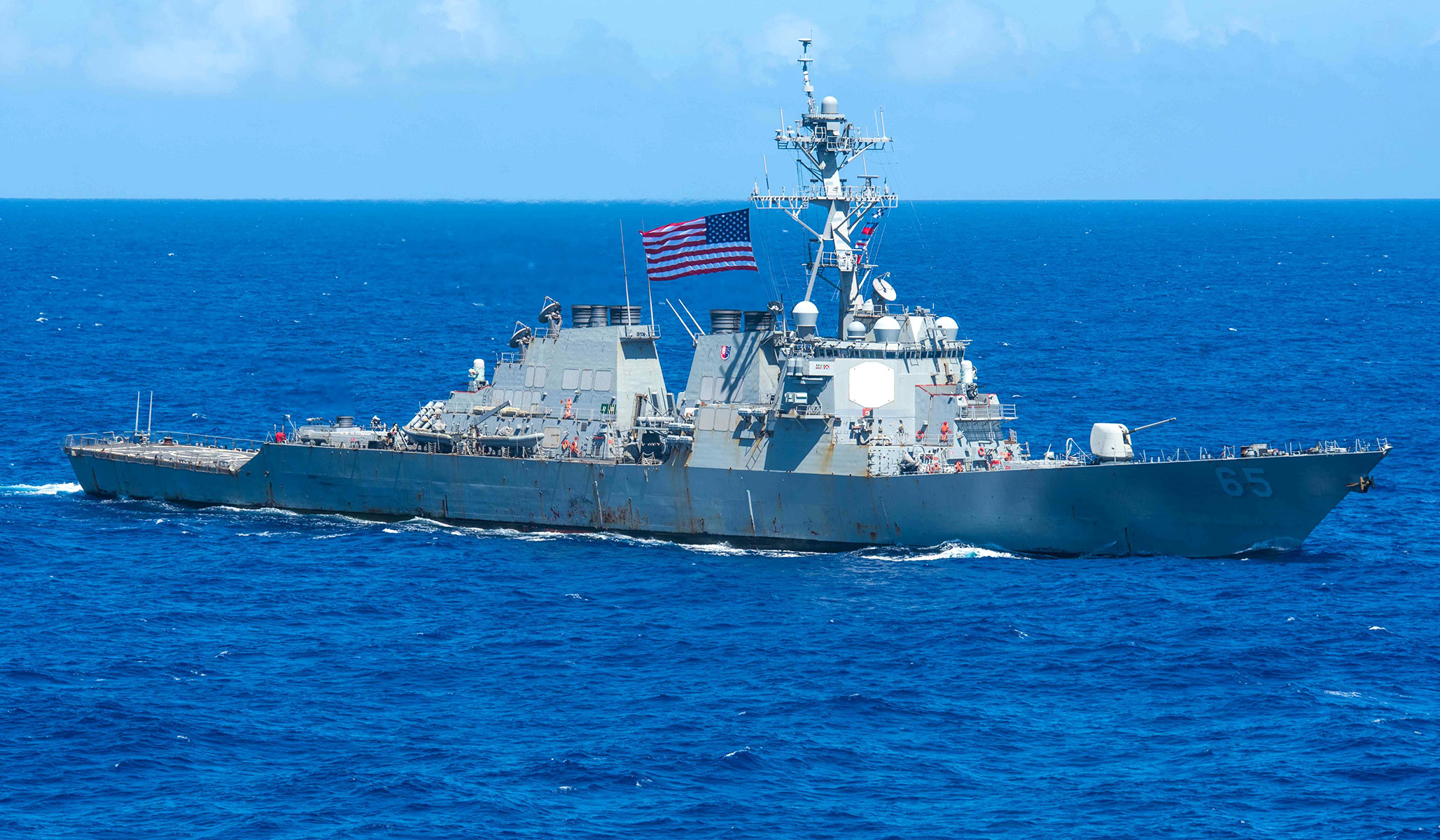
That’s called changing the frame of reference. Similarly, it’s time to change the frame of reference about Taiwan. Chairman Xi Jinping intends to control that island of 24 million people by 2027. The U.S. has said it may defend Taiwan, or it may not. For half a century, that “strategic ambiguity” has served America well. U.S. policy recognizes neither China’s sovereignty over Taiwan nor Taiwan as a sovereign country. China’s bellicosity has increased, however, while the U.S. response has been tractable. Obviously, Xi is pushing for the U.S. to treat Taiwan as a local conflict between two feuding Chinese neighbors and stay out of the fight.
Secretary of Defense Lloyd Austin has recommended Admiral Sam Paparo to be the new chief of naval operations (CNO). Admiral Sam Paparo should disabuse both Xi and the U.S. foreign-policy community of the notion that a fight for Taiwan is local. In so doing, there is a strong naval precedent for the new CNO to follow. In the late ’70s, the U.S. foreign-policy community was focused on the threat of a Soviet blitzkrieg against Western Europe. In that context, our Navy was seen as largely irrelevant. This concerned Admiral Jimmy Holloway, the chief of naval operations at the time. According to a history of that period, “Holloway initiated a rigorous study at the Naval War College in 1977. Called Sea Plan 2000, the study proposed an aggressive approach to the use of naval forces in the Cold War.”
As the director of Sea Plan 2000, I met with Secretary of Defense Harold Brown, who doubted that a NATO war would leap to other theaters or heavily involve the U.S. Navy. He approved, as a test, war games with hundreds of participants. War games, while a limited tool that cannot predict war’s outcome, do indicate trends. Year after year, the NATO-versus-Warsaw Pact/USSR game went global, with the U.S. Navy attacking Russia’s flanks and eliminating its surface fleet and submarines. Gradually, the consensus of the foreign-policy community changed. Under President Reagan, an aggressive secretary of the Navy, John Lehman, conducted naval exercises near key Russian bases. Gorbachev later remarked that the demands of his admirals for more resources for defense were a factor in his conclusion that the Soviet Union could not compete with America. The U.S. Navy had upset the Soviet hope to restrict the concept of battle to the European landmass, where the Soviets enjoyed a numerical advantage.
Similarly, the Chinese military is advantaged if a Taiwan invasion is viewed as a local, limited conflict, where close quarters favor the aggressor. Inside those confines, unclassified war games project heavy losses to both American and Chinese forces, as well as the destruction of Taiwan. Plus, the U.S. use of air bases in Japan has emerged as both crucial to a successful defense and a political wild card. Japan, like the U.S., may or may not choose to fight. Given these uncertainties, Chinese generals could advise Xi that a battle limited to Taiwan could succeed and would end America’s hegemonic reign in Asia and the Pacific.
American resolve in this matter is admittedly problematic. According to Treasury Secretary Janet Yellen, “President Biden does not see the relationship between the U.S. and China through the frame of great-power conflict.” If reelected, he may prefer not to fight for Taiwan. Former president Trump is equally unpredictable. In 2027, Xi could conclude that America probably won’t fight and that, even if it does, Japan well might stay neutral, increasing the odds that China would prevail in a limited war.
“Limited.” That’s the prevailing frame of reference the CNO and other admirals should correct by employing war games, as in the late ’70s, to educate the foreign-policy community. A U.S. president may want to stay out of the battle. But even if he seeks to avoid battle in the Taiwan Straits, POTUS is still obliged to take strong action. He knows he must avoid historians labeling him as the Neville Chamberlain of the 21st century. Congress would be certain to pass resolutions restricting the scope, if not the entirety, of Chinese aggression. At a minimum, while Taiwan was convulsing, it would be militarily rash to permit Chinese warships or military aircraft to move wherever they chose in the world. Economic sanctions against China would be a certainty.
The crux for Congress and for POTUS would be the declaration of a full seaborne quarantine of China. China cannot survive as a modern country without massive, continuous seaborne imports. More than 60 percent of its crude oil comes from seaborne imports, estimated at 11 million barrels per day. Its food self-sufficiency is less than 80 percent. Its deepwater fishing fleet of 6,000 vessels — the world’s largest — would be stranded. China could not break a blockade of its ports. Within a year, its economy and production would wither.
Nor could China apply countervailing leverage. Chinese submarines, aircraft, and missiles could not credibly retaliate. Once they sortied from their homeland bases, they would not be the hunters; they would be the prey. America could continue to trade with Japan, East Asia, the Middle East, South America, and Europe. While American (and global) productivity would be severely curtailed, China could not prevent America’s seaborne trade, while its own would be crushed.
In June, the outgoing CNO, Admiral Michael Gilday, said: “With respect to the PRC, we are operating in accordance with international law. We are not looking to be provocative. We want things to remain stable and predictable.” While that is a lofty sentiment, China does not want “things to remain stable and predictable.”
Given that reality, the new CNO, Admiral Paparo, must restore the Navy’s image of sea-control dominance. To do so is not “looking to be provocative”; instead, it is looking to strengthen an unstable deterrence. Our admirals should display confidence in defeating a Chinese invasion and/or imposing a blockade. As in the late ’70s and early ’80s, the CNO should hold ecumenical war games. Invite all services, Congress, and the White House to participate. The central trend will clearly emerge. An invasion of Taiwan triggers a conflict for global sea control that the U.S. Navy wins, leaving China impoverished. By controlling the global seas, the U.S. Navy holds a trump card that is not publicly appreciated. Change the naval frame of reference for addressing Taiwan.
Admiral Paparo should reprise Paul Newman’s quip: “Xi, I have one question: How are you getting down that hill?”

No comments:
Post a Comment